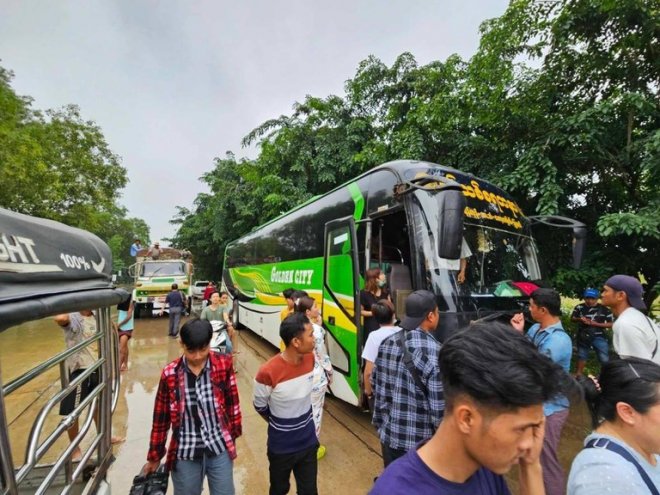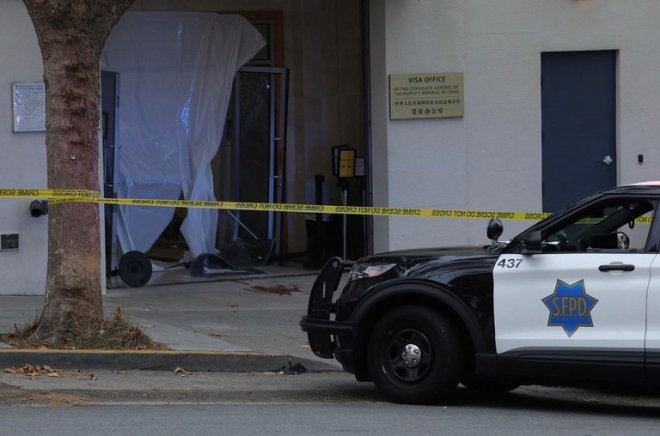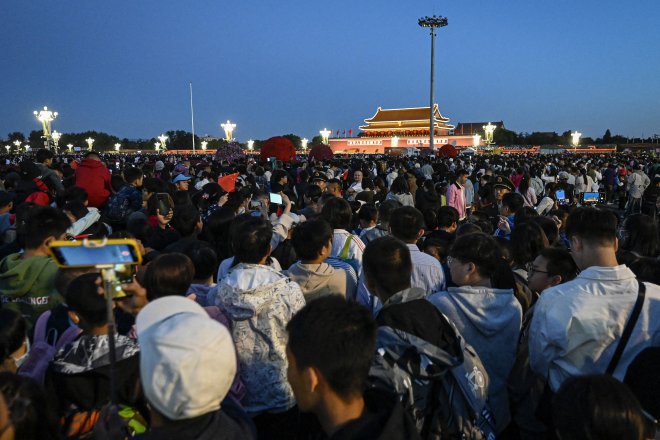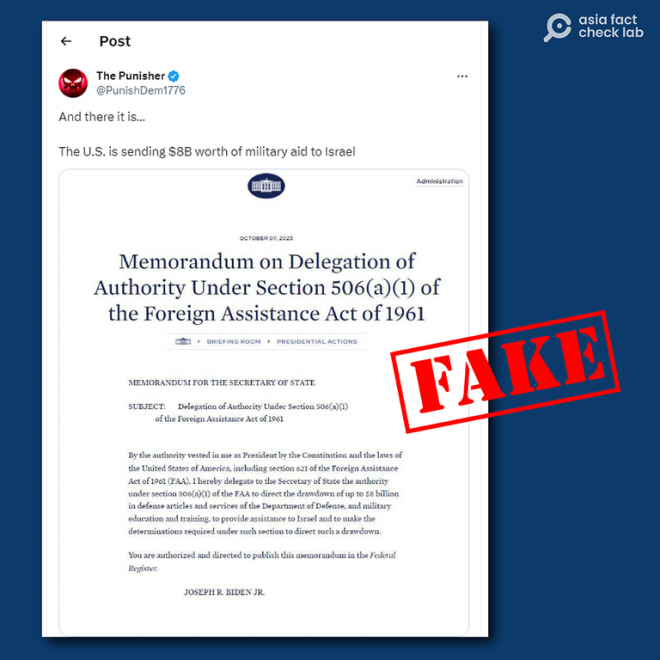Laos having hard time clamping down on wildlife trafficking
Laos is having a hard time clamping down on the trafficking of animal wildlife caught in protected areas – from tigers, pangolins and other endangered species to more plentiful squirrels and raccoons – as traffickers use social media to do business and authorities don’t have the manpower or funds to keep up, sources inside the country say.
Authorities have arrested and jailed some hunters and wildlife traffickers, but many have been released with minimal punishment.
“People are not happy with it,” a villager from Maed district in Vientiane province told Radio Free Asia. “They sell illegally, and authorities are investigating but it’s hard to find and arrest them. The villagers are not happy with hunters who hunt wildlife in preserved forests.”
One of Southeast Asia’s poorest countries Laos, is covered by vast tracts of forest, many of which are protected, with a wide variety of flora and fauna. It is a popular transit hub for the illegal wildlife trade of animals and their parts or products.
Endangered species sold domestically and trafficked internationally include pangolins, tigers, elephants, rhinos, bears and tortoises. Some are used in traditional Chinese medicine or as ornaments and others are sold as pets. Other animals are eaten in restaurants in Vietnam and Thailand.
Laos is a party to the international Convention on International Trade in Endangered Species, or CITES, a multilateral treaty protecting endangered plants and animals, and has a domestic aquatic and wildlife law.
In 2018, the prime minister directed provincial governors across Laos to take firm action concerning the enforcement of both CITES and the national wildlife law.
Difficult to enforce
But surging inflation in Laos this year has increased the poaching of ordinary forest animals, such as deer, squirrels and frogs, for cross-border sale.
An official from a wildlife protection organization in Laos said he wants the Ministry of Agriculture and Forestry, which works with local authorities to protect wildlife, to crack down on poachers and middlemen who post online ads for the sale of animals and their parts.
“We don’t want people to hunt wildlife in the preserved forest,” he said.
Lao law does not permit wildlife to be sold online, and when the crime occurs, it is difficult to detect, he added.
Although the agriculture ministry has given their officials the authority to investigate wildlife trafficking online, the crime of selling animals or their parts has continued unabated because of a lack of funding and manpower, a forest official in Savannakhet province said.
“They do not sell them in open markets,” he said, adding that most traffickers post ads on the internet.
“Plainclothes officials pretend to be middlemen to buy the wildlife, but the hunters are smart,” he said. “Some get arrested, but still more sell online.”
Most traffickers who sell wildlife and animal parts online are middlemen who buy directly from hunters who have captured them in Laos’ wildlife preserves.
In some areas, authorities patrol areas with the help of international wildlife organizations to catch poachers.
“Suppose we know where they [the hunters] live, we will go in and arrest them right away,” said a forest official in Borikhamxay province. “Some other provinces have this problem as well, but we inspect only in our province because it has many districts. We coordinate with other provinces if they need our help.”
According to Lao laws, wildlife traffickers face three months to five years in jail and fines of 3 million-10 million kip (U.S.$173-580).
Translated by Sidney Khotpanya for RFA Lao. Written in English by Roseanne Gerin. Edited by Malcolm Foster.
[圖擷取自網路,如有疑問請私訊]
Authorities have arrested and jailed some hunters and wildlife traffickers, but many have been released with minimal punishment.
“People are not happy with it,” a villager from Maed district in Vientiane province told Radio Free Asia. “They sell illegally, and authorities are investigating but it’s hard to find and arrest them. The villagers are not happy with hunters who hunt wildlife in preserved forests.”
One of Southeast Asia’s poorest countries Laos, is covered by vast tracts of forest, many of which are protected, with a wide variety of flora and fauna. It is a popular transit hub for the illegal wildlife trade of animals and their parts or products.
Endangered species sold domestically and trafficked internationally include pangolins, tigers, elephants, rhinos, bears and tortoises. Some are used in traditional Chinese medicine or as ornaments and others are sold as pets. Other animals are eaten in restaurants in Vietnam and Thailand.
Laos is a party to the international Convention on International Trade in Endangered Species, or CITES, a multilateral treaty protecting endangered plants and animals, and has a domestic aquatic and wildlife law.
In 2018, the prime minister directed provincial governors across Laos to take firm action concerning the enforcement of both CITES and the national wildlife law.
Difficult to enforce
But surging inflation in Laos this year has increased the poaching of ordinary forest animals, such as deer, squirrels and frogs, for cross-border sale.
An official from a wildlife protection organization in Laos said he wants the Ministry of Agriculture and Forestry, which works with local authorities to protect wildlife, to crack down on poachers and middlemen who post online ads for the sale of animals and their parts.
“We don’t want people to hunt wildlife in the preserved forest,” he said.
Lao law does not permit wildlife to be sold online, and when the crime occurs, it is difficult to detect, he added.
Although the agriculture ministry has given their officials the authority to investigate wildlife trafficking online, the crime of selling animals or their parts has continued unabated because of a lack of funding and manpower, a forest official in Savannakhet province said.
“They do not sell them in open markets,” he said, adding that most traffickers post ads on the internet.
“Plainclothes officials pretend to be middlemen to buy the wildlife, but the hunters are smart,” he said. “Some get arrested, but still more sell online.”
Most traffickers who sell wildlife and animal parts online are middlemen who buy directly from hunters who have captured them in Laos’ wildlife preserves.
In some areas, authorities patrol areas with the help of international wildlife organizations to catch poachers.
“Suppose we know where they [the hunters] live, we will go in and arrest them right away,” said a forest official in Borikhamxay province. “Some other provinces have this problem as well, but we inspect only in our province because it has many districts. We coordinate with other provinces if they need our help.”
According to Lao laws, wildlife traffickers face three months to five years in jail and fines of 3 million-10 million kip (U.S.$173-580).
Translated by Sidney Khotpanya for RFA Lao. Written in English by Roseanne Gerin. Edited by Malcolm Foster.
[圖擷取自網路,如有疑問請私訊]
|
本篇 |
不想錯過? 請追蹤FB專頁! |
| 喜歡這篇嗎?快分享吧! |
相關文章
AsianNewsCast




















